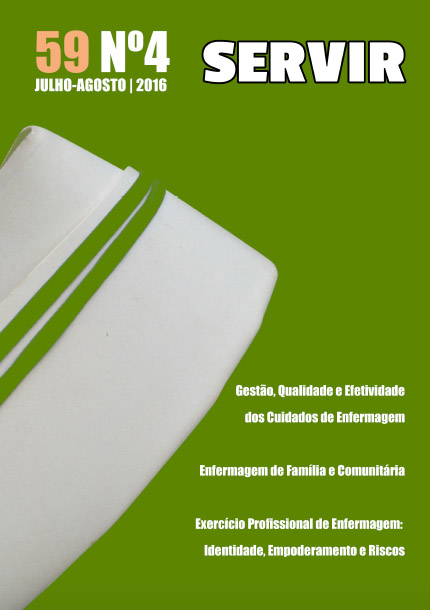Humor and stress of nurses who caregivers people with end of life
DOI:
https://doi.org/10.48492/servir024.24087Keywords:
Humor, Coping, Stress, Nurses and End of LifeAbstract
INTRODUCTION
Nurses are one of the most exposed professional group to stressors, namely those who provide end of life care due to their daily contact with death, bad emotions and suffer. There is scientific evidence that humor may constitute an incisive coping strategy in the management of occupational stress that can be used by professionals for their own benefit. The analysis of the relationship between humor and the stress level requires the exploitation of characteristics like the magnitude and orientation thereof using appropriate tools of evaluation.
OBJECTIVES
Establish the relationship between Humor and Stress in the workplace of nurses who provide end of life care. Define the nature of this relationship in terms of its magnitude and orientation.
METHODS
Correlational Study. Data collection began with an online form – containing a social-demographic survey and both Portuguese translations of Multidimensional Sense of Humor Scale (José, 2008) and Nurse Stress Index (Fernandes, 1996) – to 61 nurses who care for end of life patients. Data analysis was conducted using the statistical software SPSS, version 20.
RESULTS
The results of this study demonstrates that individuals experience stress in several situations linked to work environment and reveal a strong acceptance and appreciation of humor.
CONCLUSIONS
An increase in the stress level led to a growth in sense of humor. Therefore, it can be seen that nurses who care for end of life patient’s appeal to sense of humor as a strategy to manage stressful situations that they face in their everyday labor.
Downloads
References
José, H. e. Parreira, P. (2008). Adaptação para Português da Escala Multidimensional do Sentido de Humor (MSHS). Revista Referência, 2, pp. 7-18.
Fernandes, M. (1996). Avaliação do stress nos enfermeiros de cuidados intensivos. Coimbra: Faculdade de Medicina.
Frederico-Ferreira, M., & Silva, C. (2012). Reformas da gestão na saúde - desafios que se colocam aos enfermeiros. Revista de Enfermagem Referência, III Série(8).
Gonçalves, A. (2013). Gestão do stress em enfermeiros perioperatórios. Dissertação de Mestrado, Associação de Politécnicos do Norte (APNOR) - Instituto Politécnico de Bragança, Bragança.
Rickman, C., & Waybright, L. (2006). Humor - It Works! Extension Service West Virginia Unisersity, USA.
Wanzer, M., Booth-Butterfield, M., & Booth-Butterfield, S. (2005). “If we didn’t use humor, we’d cry”: Humorous coping communication in health care settings. Journal of Health Communication(10), pp. 105-125.
Downloads
Published
How to Cite
Issue
Section
License
In order to promote the free circulation of knowledge, Servir is open access journal. All its content is available and protected under the Creative Commons license (CC BY 4.0).
The journal allows self-archiving in institutional repositories of all versions, which may become immediately available


